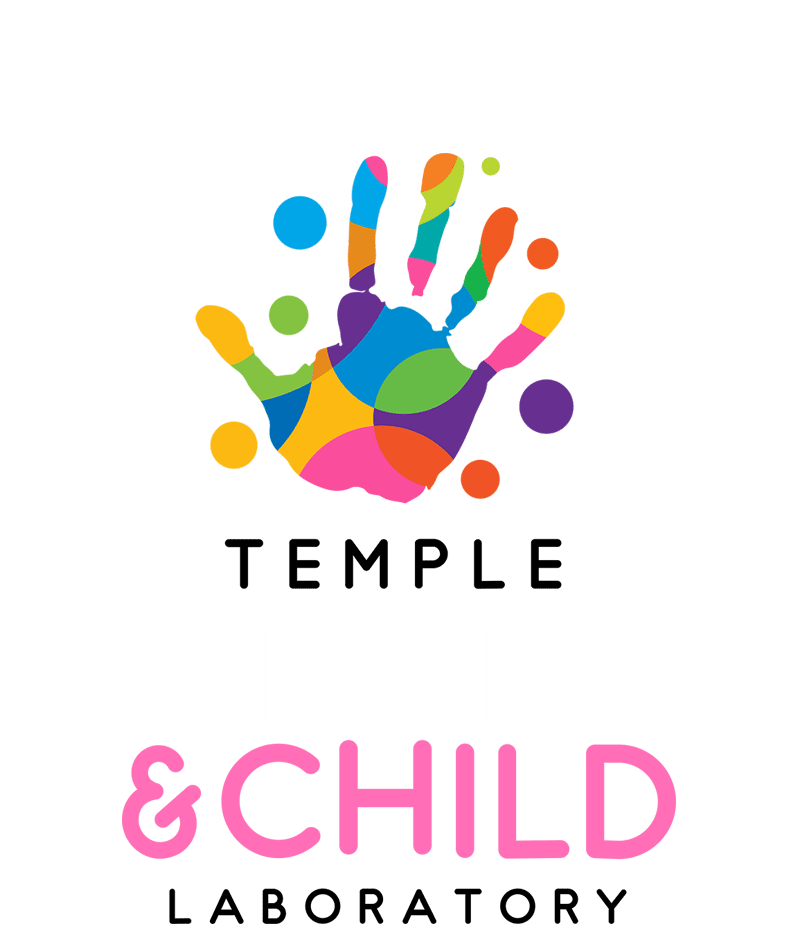Selected Publications
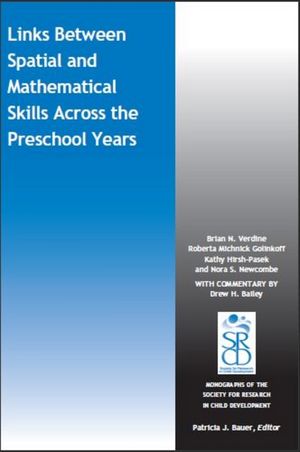
Links Between Spatial and Mathematical Skills Across the Preschool Years
Verdine, B., Golinkoff, R. M., Hirsh-Pasek, K., & Newcombe, N. Spatial thinking: fundamental to school readiness. (2017). Society for Research in Child Development Monograph series. No. 324, 82, 1.
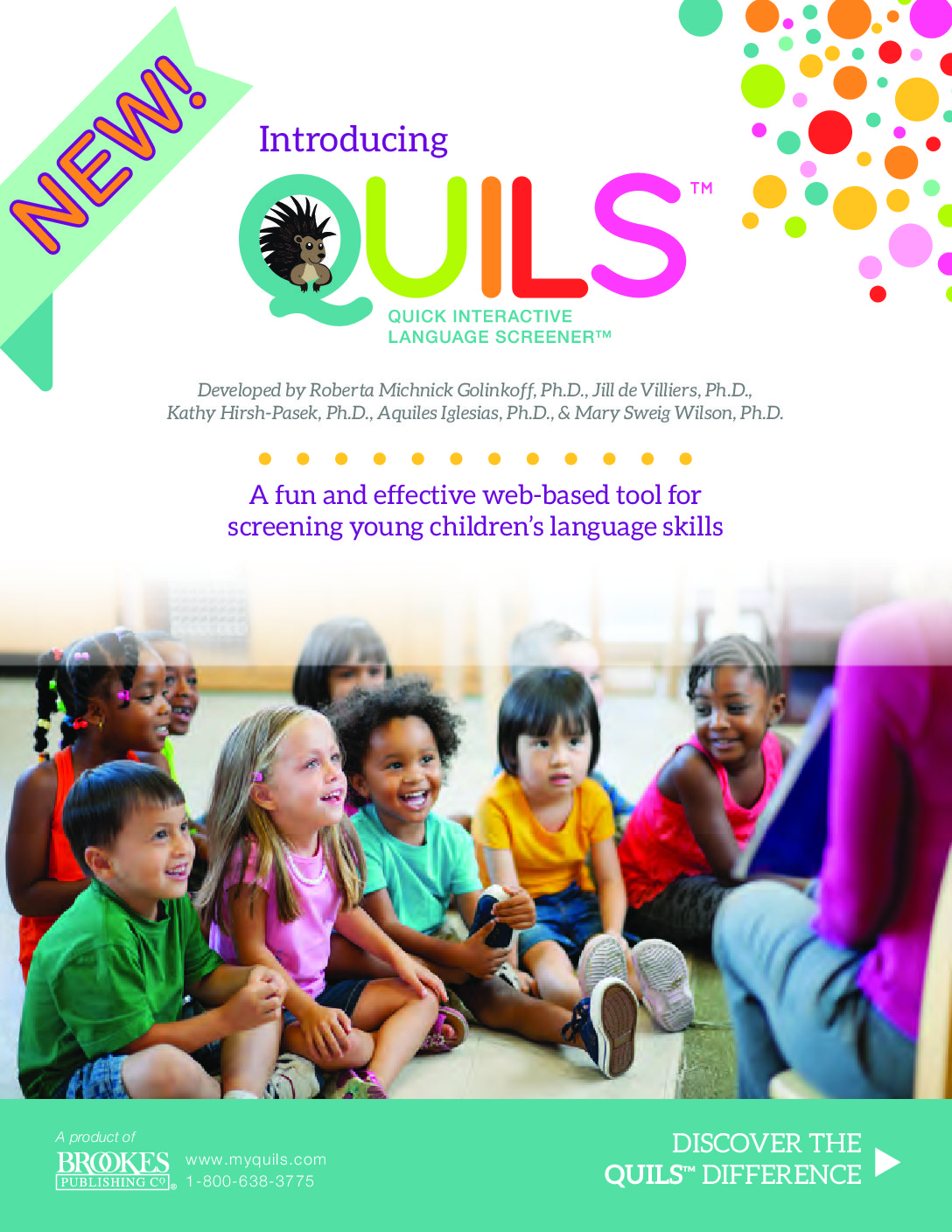
User’s Manual for the Quick Interactive Language Screener
Golinkoff, R.M., de Villiers, J., Hirsh-Pasek, K, Iglesias, A, & Wilson, M. (2017) User’s Manual for the Quick Interactive Language Screener. Baltimore, Brookes Publishing Co.
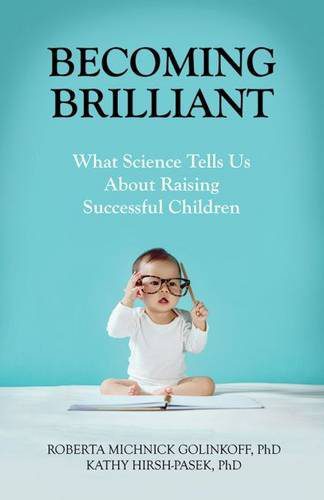
Becoming Brilliant
Golinkoff, R. M., & Hirsh-Pasek, K. (2016). Becoming brilliant: What science tells us about raising successful children. American Psychological Association.
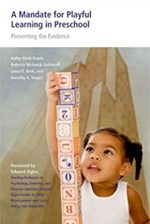
A mandate for playful learning in preschool: Presenting the evidence.
Hirsh-Pasek, K., Golinkoff, R. M., Berk, L. & Singer, D., (2009). A mandate for playful learning in preschool: Presenting the evidence. NY: Oxford University Press.
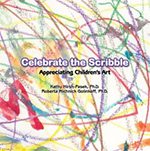
Celebrate the Scribble
Hirsh-Pasek, K. & Golinkoff, R. (2007). Celebrate the Scribble. Lorton, VA: VSP Books
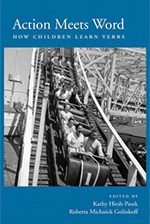
Action Meets Word
Hirsh-Pasek, K. & Golinkoff, R. (Eds.) (2006) Action meets word: How children learn verbs. New York: Oxford University Press.
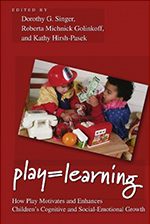
Play=Learning
Singer, D., Golinkoff, R. M., & Hirsh-Pasek, K. (Eds.) (2006). Play=Learning: How play motivates and enhances children’s cognitive and social-emotional growth. New York, NY: Oxford University Press.
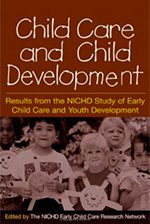
Child Care and Child Development
NICHD Early Child Care Research Network (2005) Child Care and Child Development: Results from the NICHD Study of Early Child Care and Youth Development. New York: Guildford Publications.

Einstein Never Used Flashcards
Hirsh-Pasek, K. , Golinkoff, R., (2003) Einstein Never Used Flashcards: How our children really learn and why they need to play more and memorize less. Emaus, Rodale Press (translations in Indonesian, Japanese, Chinese)
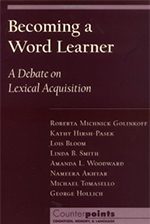
Becoming a World Learner
Golinkoff, R., Hirsh-Pasek, K., Akhtar, N., Bloom, L., Hollich, G., Smith, L.,Tomasello, M., & Woodward, A. (Ed.) ( 2000) Becoming a word learner: A debate on lexical acquisition? NY: Oxford University Press.
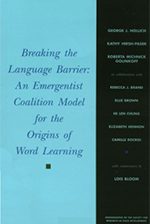
Breaking the Language Barrier
Hollich, G. Hirsh-Pasek, K. & Golinkoff, R. (2000) Breaking the language barrier: An emergentist coalition model for the origins of word learning. Monographs for the Society for Research in Child Development. Serial number 262.
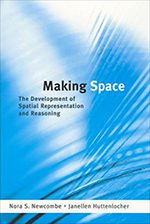
Making Space
Newcombe, N. S. & Huttenlocher, J. (2000). Making space: The development of spatial representation and reasoning. MIT Press.
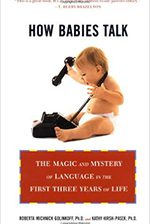
How Babies Talk
Golinkoff, R. & Hirsh-Pasek, K. (1999) How babies talk: The magic and mystery of language acquisition. New York: Dutton/Penguin(translated into French, Italian, Spanish)

Origins of Grammar
Hirsh-Pasek, K. & Golinkoff, R.M., (1996) The Origins of Grammar: Evidence from Comprehension, Cambridge, Mass: MIT Press.
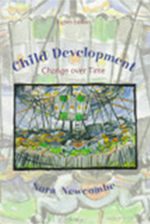
Child Development
Newcombe, N. (1991) Child development: Change over time. New York: Harper Collins.
Language Publications
Masek, L. R., Paterson, S. J., Golinkoff, R. M., Bakeman, R., Adamson, L. B., Owen, M. T., Pace, A., & Hirsh‐Pasek, K. (2021). Beyond talk: Contributions of quantity and quality of communication to language success across socioeconomic strata. Infancy, 26(1), 123–147. https://doi.org/10.1111/infa.12378
Luo, R., Pace, A., Levine, D., Iglesias, A., de Villiers, J., Golinkoff, R. M., Wilson, M. S., Hirsh-Pasek, K. (2021). Home literacy environment and existing knowledge mediate the link between socioeconomic status and language learning skills in dual language learners. Early Childhood Research Quarterly, 55, 1-14. https://www.sciencedirect.com/science/article/pii/S088520062030123X
Masek, L. R., McMillan, B. T. M., Paterson, S. J., Tamis-LeMonda, C. S., Golinkoff, R. M., & Hirsh-Pasek, K. (2021). Where language meets attention: How contingent interactions promote learning. Developmental Review, 60, 100961. https://doi.org/10.1016/j.dr.2021.100961
Rumper, B., Frechette, E., Greenfield, D. B., & Hirsh-Pasek, K. (2021). Impacts on Head Start dual language learning children’s early science outcomes. Education Sciences, 11(6), 283. https://doi.org/10.3390/educsci11060283
Alper, R. M., Beiting, M., Luo, R., Jaen, J., Peel, M., Levi, O., Robinson, C., & Hirsh-Pasek, K. (2021). Change the things you can: Modifiable parent characteristics predict high-quality early language interaction within socioeconomic status. Journal of Speech, Language, and Hearing Research, 64(6), 1992–2004. https://doi.org/10.1044/2021_JSLHR-20-00412
Rumper, B. M., Alper, R. M., Jaen, J. C., Masek, L. R., Luo, R., Blinkoff, E., Mogul, M., Golinkoff, R. M., & Hirsh-Pasek, K. (2021). Beyond translation: Caregiver collaboration in adapting an early language intervention. Frontiers in Education, 6. https://doi.org/10.3389/feduc.2021.660166
de Villiers, J., Iglesias, A., Golinkoff, R., Hirsh-Pasek, K., Wilson, M. S., & Nandakumar, R. (2021). Assessing dual language learners of Spanish and English: Development of the QUILS: ES. Revista de Logopedia, Foniatría y Audiología. https://doi.org/10.1016/j.rlfa.2020.11.001
Blinkoff, E., Levine, D., Avelar, D., Golinkoff, R. M., & Hirsh-Pasek, K. (2020). Language development: overview. In J. B. Benson (Ed.), Encyclopedia of Infant and Early Childhood Development (2nd ed., pp. 228-236). Elsevier.
Levine, D., Blinkoff, E., Golinkoff, R. M., & Hirsh-Pasek, K. (2020). “Languagizing” the preschool classroom: Six principles. In M. Daszkiewicz & A. Dabrowska (Eds.), In the Search of a Language Pedagogical Paradigm (pp. 163-171). Impuls.
Levine, D., Avelar, D., Golinkoff, R. M., Hirsh-Pasek, K., & Houston, D. M. (2020) Foundations of language development in deaf and hard-of-hearing infants: Cognitive and social processes. In M. Marshark & H. Knoors (Eds.), The Oxford Handbook of Deaf Studies in Learning and Cognition (pp. 21-32). Oxford University Press. https://doi.org/10.1093/oxfordhb/9780190054045.013.31
Levine, D., Pace, A., Luo, R., Hirsh-Pasek, K., Golinkoff, R. M., de Villiers, J., Iglesias, A., & Wilson, M. S. (2020). Evaluating socioeconomic gaps in preschoolers’ vocabulary, syntax, and language process skills with the Quick Interactive Language Screener (QUILS). Early Childhood Research Quarterly, 50, 114-128.
Pace, A., Levine, D., Golinkoff, R., Carver, L., & Hirsh-Pasek, K. (2020). Keeping the end in mind: Preliminary brain and behavioral evidence for a broad attention to endpoints in pre-linguistic infants. Infant Behavior and Development, 58.
Pace, A., Luo, R., Levine, D., Iglesias, A., deVilliers, J., Golinkoff, R. M., Wilson, M. S., & Hirsh-Pasek, K. (2020) Within and across language predictors of word learning processes in dual language learners. Child Development, 1-19. https://doi.org/10.1111/cdev.13418
Blinkoff, E., & Hirsh-Pasek, K. (2019). Supporting language in the home. International Journal of Birth and Parent Education, 6(4), 13-15.
Dore, R. A., Shirilla, M., Hopkins, E., Collins, M., Scott, M., Schatz, J., … Hirsh-Pasek, K. (2019). Education in the app store: Using a mobile game to support U.S. preschoolers’ vocabulary learning. Journal of Children and Media, 13(4), 452–471.
Konishi, H., Brezack, N., Golinkoff, R. M., & Hirsh-Pasek, K. (2019). Crossing to the other side: Language influences children’s perception of event components. Cognition, 192.
Luo, R., Alper, R. M., Hirsh-Pasek, K., Mogul, M., Chen, Y., Masek, L. R., … Owen, M. T. (2019). Community-based, caregiver-implemented early language intervention in high-risk families: Lessons learned. Progress in Community Health Partnerships: Research, Education, and Action, 13(3), 283–291.
Dickinson, D. K., Collins, M. F., Nesbitt, K., Toub, T. S., Hassinger-Das, B., Hadley, E. B., Hirsh-Pasek, K., & Golinkoff, R. M. (2019). Effects of teacher-delivered book reading and play on vocabulary learning and self-regulation among low-income preschool children. Journal of Cognition and Development, 1-29.
Dickinson, D. K., Nesbitt, K. T., Collins, M. F., Hadley, E. B., Newman, K., Rivera, B. L., Ilgez, H., Nicolopoulou, A., Golinkoff, R.M., & Hirsh-Pasek, K. (2019). Teaching for breadth and depth of vocabulary knowledge: Learning from explicit and implicit instruction and the storybook texts. Early Childhood Research Quarterly, 47, 341-356.
Hadley, E. B., Dickinson, D. K., Hirsh‐Pasek, K., & Golinkoff, R. M. (2019). Building semantic networks: The impact of a vocabulary intervention on preschoolers’ depth of word knowledge. Reading Research Quarterly, 54(1), 41-61.
Hirsh-Pasek, K., & Golinkoff, R. M. (2019). Put your data to use: Entering the real world of children and families. Perspectives on Psychological Science, 14(1), 37-42.
Levine, D., Buchsbaum, D., Hirsh‐Pasek, K., & Golinkoff, R. M. (2019). Finding events in a continuous world: A developmental account. Developmental psychobiology, 61(3), 376-389.
Ma, W., Zhou, P., Golinkoff, R. M., Lee, J., & Hirsh-Pasek, K. (2019). Syntactic cues to the noun and verb distinction in Mandarin child-directed speech. First Language, 0142723719845175.
Rajan, V., Konishi, H., Ridge, K., Houstin, D. M., Golinkoff, R. M., Hirsh-Pasek, K., Eastman, N., & SCHWARTZ, R. G. (2019). Novel word learning at 21 months predicts receptive vocabulary outcomes in later childhood. Journal of child language, 1-15.
Aravind, A., de Villiers, J.G., Pace, A., Nye, H., Klein, M., Golinkoff, R., Hirsh-Pasek, K., Iglesias, A. & Wilson, M. (2018). Fast mapping word meanings across trials: young children forget all but their first guess. Cognition, 177, 177-188.
Dore, R. A., Amendum, S. J., Golinkoff, R. M., & Hirsh-Pasek, K. (2018). Theory of Mind: a Hidden Factor in Reading Comprehension?. Educational Psychology Review, 1-23.
Golinkoff, R.M., Hoff, E., Rowe, M., Tamis-LeMonda, C. & Hirsh-Pasek, K. (2018) Language matters: Denying the existence of the 30-million word gap has serious consequences. Child Development.
Golinkoff, R. M., Soderstrom, M., Deniz Can, D., & Hirsh-Pasek, K. (2018). Visual preference techniques. In A. M. B. de Groot & P. Hagoort (Eds.), Research methods in psycholinguistics and the neurobiology of language (pp. 18-39). NY: Wiley Blackwell.
Hirsh-Pasek*, K. Alper*, R. M. & Golinkoff, R.M. (2018) Living in Pasteur’s Quadrant: How conversational duets spark language at home and in the community. Discourse Processes, 55,4, 1-8. (*shared first authorship)
Hirsh-Pasek, K. & Golinkoff, R. M. (2018). “Languagizing” their world: Why talking, reading, and singing are so important. Zero to Three Newsletter.
Toub, T., Hassinger-Das, B., Nesbitt, K.,Ilgaz, H.,Weisberg, D.,Hirsh-Pasek, K., Golinkoff, R.M. Nicolopoulou, A., & Dickinson, D. (2018) The Language of Play: Developing preschool vocabulary through play following shared book-reading. Early Childhood Research Quarterly. 45, 1-17.
Hassinger-Das, B.1, Toub, T. S.1, Hirsh-Pasek, K., & Golinkoff, R. M. (2017). A matter of principle: Applying language science to the classroom and beyond. Translational Issues in Psychological Science, 3, 5-18. doi: 10.1037/tps0000085 1Co-first author.
Göksun, T., Aktan-Erciyes, A., Hirsh-Pasek, K., & Golinkoff, R. (2017). Event perception and language learning: Early interactions between language and thought. In N. Ketrez, A. C. Küntay, Ş. Özçalışkan, & A. Özyürek (Eds.) Social Environment and Cognition in Language Development: Studies in honor of Ayhan Aksu-Koç (pp. 179-198,). Trends in Language Acquisition Research (TiLAR) Series, John Benjamins.
Levine, D., Golinkoff, R.M. & Hirsh-Pasek, K. (2017) A Goal Bias in Action: The Boundaries Adults Perceive in Events Align with Sites of Actor Intent. Journal of Experimental Psychology: Learning, Memory, and Cognition. J Exp Psychol Learn Mem Cogn. 43(6):916-927. doi: 10.1037/xlm0000364
Pace, A., Luo, R., Hirsh-Pasek, K., & Golinkoff, R.M. (2017) Identifying pathways between socio-economic status and language development. Annual Review of Linguistics, 3, 285-308.
Reed, J., Hirsh-Pasek, K. & Golinkoff, R.M. (2017) Learning on hold: Cell phones sidetrack parent-child interactions. Developmental Psychology.
Hadley, E. B., Dickinson, D. K., Golinkoff, R. M., & Hirsh-Pasek, K. (2016). Examining the acquisition of vocabulary knowledge depth among preschool-aged children. Reading Research Quarterly 51(2), 181-198 doi: 10.1002/rrq.130
Hassinger-Das, B., Ridge, K., Parker, A., Golinkoff, R. M., Hirsh-Pasek, K., & Dickinson, D. K. (2016). Building vocabulary knowledge in preschoolers through shared book reading and gameplay. Mind, Brain, and Education, 10, 71-80. doi: 10.1111/mbe.12103
Konishi, H., Pruden, S., Golinkoff, M., R., & Hirsh-Pasek, K. (2016). Categorization of dynamic realistic motion events: Infants form categories of path before manner. Journal Experimental Child Psychology, 152, 54-70.
Konishi, H., Stahl, A., Golinkoff, R. M., & Hirsh-Pasek, K. (2016). Individual differences in non-linguistic event categorization predict later motion verb comprehension. Journal of Experimental Child Psychology, 151, 18-32.
Konishi, H., Wilson, F., Golinkoff, R., Maguire, M. & Hirsh-Pasek, K. (2016) Late Japanese bilinguals’ novel verb construal. Language and Cognition. Development, (pp. 323-326). Thousand Oaks, CA: Sage
Levine, D., Strother-Garcia, K., Golinkoff, R. M., Hirsh-Pasek, K. (2016). Language development in the first year of life: What deaf children might be missing until cochlear implantation. Journal of Otology & Neurotology, 37, 56-62.
Pace, A., Hirsh-Pasek, K. & Golinkoff, R.M. (2016) High quality language environments leads to high quality learning. In Jones, S. & Lesaux, N. The Leading Edge of Early Childhood Education, 45-67.
Pace, A., Levine, D., Morini, G., Hirsh-Pasek, K. & Golinkoff, R.M. (2016) The story of language acquisition: From words to world and back again. In L. Balter and C. Tamis-LeMonda C. (Eds.), Child Psychology: A Handbook of Contemporary Issues, 3rd Edition. 43-79.
Reed, J., Hirsh-Pasek, K., & Golinkoff, R. M. (2016). Meeting children where they are: Adaptive contingency builds early communication skills. In P. L. Witt (Ed.) Communication and learning (Vol. 16, Handbooks of communication science). Berlin: deGruyter Mouton. pp. 601-627.
Song, L., Pruden, S.M., Golinkoff, R.M., & Hirsh-Pasek, K. (2016) Prelinguistic foundations of verb learning: Infants discriminate and categorize dynamic human actions. Journal of Experimental Child Psychology. 151, 77-95
Hirsh-Pasek, K., Adamson, L., Bakeman, R.,Golinkoff, R.M., Pace, A., Yust, P. & Suma, K. (2015). The contribution of early communication to low-income children’s language success. Psychological Science. 26, 1071-1083
Ridge, K., Weisberg, D., Ilgaz, H., Hirsh-Pasek, K and Golinkoff, R.M. (2015) “Supermarket speak”: Increasing conversations among Low-SES families. Mind, Brain & Education. 9, 3, 127-135.
Stahl, A., Romberg, A., Roseberry, S., Golinkoff, R.M., & Hirsh-Pasek, K. (2014) Infants segment continuous events using transitional probabilities. Child Development. 85, 1821-1826
Weisberg, D.,S., Ilgaz, H., Hirsh-Pasek, K., Golinkoff, R.M., Nicolopoulou, A. (2015) Shovels and swords: How realistic and fantastical themes affect children’s word learning. Cognitive Development. 35, 1-14.
Zosh, J., Filipowicz, A., Verdine, B., Golinkoff, R. M., & Hirsh-Pasek, K. (2015). Parental language with electronic and traditional and shape sorters. Mind, Brain & Education, 9, 3,136-144
George, Nathan R., Göksun, Tilbe, Hirsh-Pasek, Kathy, Golinkoff, Roberta Michnick. (2014). Carving the World for Language: How Neuroscientific Research Can Enrich the Study of First and Second Language Learning. Developmental Neuropsychology, 39(4), 262-284.
download pdf
Konishi, H., Kanero, J., Freeman, M. R., Golinkoff, R. M., & Hirsh-Pasek, K. (2014). Six principles of language development: Implications for second language learners. Developmental Neuropsychology, 39(5), 404-420
Roseberry, S., Hirsh-Pasek, K., & Golinkoff, R.M. (2014) Skype me! Socially contingent interactions help toddlers learn language. Child Development. 956-970.
Roseberry, Sarah, Göksun, Hirsh-Pasek, Kathy, Golinkoff, Roberta Michnick. (2012). Carving categories in a continuous world: Preverbal infants discriminate categorical changes before distance changes in dynamic events. Spatial Cognition and Computation: An Interdisciplinary Journal, 12(4), 231-251.
download pdf
Dickinson, David K., Griffith, Julie A., Golinkoff, Roberta Michnick, Hirsh-Pasek, Kathy. (2012). How Reading Books Fosters Language Development around the World, 2012(2012), 15 pages.
download pdf
Göksun, T., Hirsh-Pasek, K., Golinkoff, R., Imai, M., Konishi, H., & Okada, H. (2011). Who is crossing where? Infants’ discrimination of figures and grounds in events. Cognition,121(2), 176-195.
direct link
download pdf
Maguire, M. J., Hirsh-Pasek, K., Golinkoff, R., Imai, M., Haryu, E., Vanegas, S., & Sanchez-Davis, B. (2010). A developmental shift from similar to language-specific strategies in verb acquisition: A comparison of English, Spanish, and Japanese. Cognition, 114(3), 299-319.
direct link
download pdf
Roseberry, S., Hirsh-Pasek, K., Parish-Morris, J., & Golinkoff, R. M. (2009). Live action: Can young children learn verbs from video?. Child Development, 80(5), 1360-1375.
direct link
download pdf
Space Publications
Bower, C. A., Zimmermann, L., Verdine, B. N., Pritulsky, C., Golinkoff, R. M., & Hirsh‐Pasek, K. (2021). Enhancing spatial skills of preschoolers from under‐resourced backgrounds: A comparison of digital app vs. concrete materials. Developmental Science. https://doi.org/10.1111/desc.13148
Newcombe, N. S. (2021, April 29). The development of navigation [Webinar]. Royal Institute of Navigation. https://www.youtube.com/watch?v=vShrTgEgcLs
Zhao, J., Sensibaugh, T., Bodenheimer, B., McNamara, T. P., Nazareth, A., Newcombe, N., Minear, M., & Klippel, A. (2020). Desktop versus immersive virtual environments: effects on spatial learning. Spatial Cognition & Computation. https://doi.org/10.1080/13875868.2020.1817925
Begolli, K. N., Booth, J. L., Holmes C. A., & Newcombe, N. S. (2020). How many apples make a quarter? The challenge of discrete proportional formats. Journal of Experimental Child Psychology, 192. https://doi.org/10.1016/j.jecp.2019.104774
Bower, C., Zimmermann, L., Verdine, B., Toub, T. S., Islam, S., Foster, L., Evans, N., Odean, R., Cibischino, A., Pritulsky, C., Hirsh-Pasek, K., & Golinkoff, R. M. (2020). Piecing together the role of a spatial assembly intervention in preschoolers’ spatial and mathematics learning: Influences of gesture, spatial language, and socioeconomic status. Developmental Psychology, 56(4), 686–698. https://doi.org/10.1037/dev0000899
Bower, C. A., Foster, L., Zimmermann, L., Verdine, B. N., Marzouk, M., Islam, S., Golinkoff, R. M., & Hirsh-Pasek, K. (2020). Three-year-olds’ spatial language comprehension and links with mathematics and spatial performance. Developmental Psychology, 56(10), 1894–1905. https://doi.org/10.1037/dev0001098
Pritulski, C., Morano, C., Odean, R., Bower, C., Hirsh-Pasek, K., & Golinkoff, R. M. (2020). Spatial thinking: Why it belongs in the preschool classroom. Translational Issues in Psychological Science, 6(3), 271-282. https://doi.org/10.1037/tps0000254
Bower, C., Odean, R., Verdine, B. N., Medford, J. R., Marzouk, M., Golinkoff, R. M., & Hirsh-Pasek, K. (2020). Associations of 3-year-olds’ block-building complexity with later spatial and mathematical skills. Journal of Cognition and Development, 1–23.
Verdine, B. N., Zimmermann, L., Foster, L., Marzouk, M. A., Golinkoff, R. M., Hirsh-Pasek, K., & Newcombe, N. (2019). Effects of geometric toy design on parent–child interactions and spatial language. Early childhood research quarterly, 46, 126-141.
Zimmermann, L., Foster, L., Golinkoff, R. M., & Hirsh-Pasek, K. (2019). Spatial Thinking and STEM: How Playing with Blocks Supports Early Math. American Educator, 42(4), 22-27.
Bower, C., Zimmermann, L., Hirsh-Pasek, K., & Golinkoff, R. M. (2018). Blocking out time for blocks: Increasing STEM skills through playful learning. AfterSchool Today, 9, 24.
Harris, J., George, N., Hirsh-Pasek, K., & Newcombe, N. (2018) Where will it go? How children and adults reason about force and motion. Cognitive Development. 45, 113-124
Verdine, B.,Foster, L., Golinkoff, R.M., Hirsh-Pasek, K., Marzouk, M., Newcombe, N., Zimmerman, L. (2018). Effects of geometric toy design on parent-child interactions and spatial language. Early Childhood Research Quarterly.
Toub, T. S., Hassinger-Das, B., Hirsh-Pasek, K., & Golinkoff, R. M. (2017). Early STEM support: Engineering a strong foundation for development. IMPACT on Instructional Improvement, 42(1), 12–26.
Verdine, B. N., Bunger, A., Athanasopoulou, A., Golinkoff, R. M., & Hirsh-Pasek, K. (2017). Shape up: An eye-tracking study of preschoolers’ shape name processing and spatial development. Developmental psychology, 53(10), 1869.
Morhring, W. Ramsook, K. Hirsh-Pasek, K. Golinkoff, R.M., Newcombe, N. (2016) Where music meets space: Children’s sensitivity to continuous pitch magnitudes is related to mental spatial transformations. Cognition, 151, 1-5
Jirout, J. J. & Newcombe, N. S. (2015). Building Blocks for Developing Spatial Skills: Evidence From a Large, Representative U.S. Sample. Psychological Science, 26(3), 302-310.
download pdf
Mohring, W., Newcombe, N.S., Levine, S.C., & Frick, A. (2015). Spatial proportional reasoning is associated with formal knowledge about fractions. Journal of Cognition and Development.
download pdf
Verdine, B.N., Lucca, K.R., Golinkoff, R.M., Hirsh-Pasek, K., & Newcombe, N.S. (2015). The shape of things: the origin of young children’s knowledge of the names and properties of geometric forms. Cognition and Development.
download pdf
Frick, A., Möhring, W., & Newcombe, N. S. (2014). Picturing perspectives: development of perspective-taking abilities in 4- to 8-year-olds. Frontiers in Psychology, 5, 386.
download pdf
Verdine, B., Golinkoff, R.M., Hirsh-Pasek, K. & Newcombe, N. (2014) Finding the missing piece: Blocks, puzzles, and shapes fuel school readiness. Trends in Neuroscience and Education. 7-13
Verdine, B., Golinkoff, R., Hirsh-Pasek, K, Newcombe, N., Filipowicz, A. & Chang, A. (2014) Deconstructing Building Blocks: Preschoolers’ Spatial Assembly Performance Relates to Early Mathematical Skills. Child Development.1062-1076.
Verdine, B., Irwin, C., Golinkoff, R. M., & Hirsh-Pasek, K. (2014) Contributions of Executive Function and a New Test of Spatial-Geometric Skill to Preschool Mathematics Achievement. Journal of Experimental Child Psychology. 126, 37-51.
Newcombe, N. S. (2013). Seeing Relationships: Using Spatial Thinking to Teach Science, Mathematics, and Social Studies. American Educator, 37(1), 26-31 and 40.
download pdf
Frick, A., Ferrara, K. & Newcombe, N.S. (2013). Using a touch screen paradigm to assess the development of mental rotation between 3 ½ and 5 ½ years of age. Cognitive Processing, 14, 117-127.
download pdf
Sutton, J. E., Twyman, A. D., Joanisse, M. F., & Newcombe, N. S. (2012). Geometry Three Ways: An fMRI Investigation of Geometric Information Processing During Reorientation. Journal Of Experimental Psychology: Learning, Memory, And Cognition.
direct link
download pdf
Uttal, D. H., Meadow, N. G., Tipton, E., Hand, L. L., Alden, A. R., Warren, C., & Newcombe, N. S. (2012). The Malleability of Spatial Skills: A Meta-Analysis of Training Studies. Psychological Bulletin.
direct link
download pdf
Play Publications
Gaudreau, C., Bustamante, A. S., Hirsh‐Pasek, K., & Golinkoff, R. M. (2021). Questions in a life‐sized board game: Comparing caregivers’ and children’s question‐asking across STEM museum exhibits. Mind, Brain, and Education, 15(2), 199–210. https://doi.org/10.1111/mbe.12283
Evans, N. S., Todaro, R. D., Schlesinger, M. A., Golinkoff, R. M., & Hirsh-Pasek, K. (2021). Examining the impact of children’s exploration behaviors on creativity. Journal of Experimental Child Psychology, 207, 105091. https://doi.org/10.1016/j.jecp.2021.105091
Bustamante, A. S., Schlesinger, M., Begolli, K. N., Golinkoff, R. M., Shahidi, N., Zonji, S., Riesen, C., Evans, N., & Hirsh-Pasek, K. (2020). More than just a game: transforming social interaction and STEM play with Parkopolis. Developmental Psychology, 56(6), 1041-1056. https://doi.org/10.1037/dev0000923
Hassinger-Das, B., Zosh, J. M., Hansen, N., Talarowski, M., Zmich, K., Golinkoff, R. M., & Hirsh-Pasek, K. (2020). Play-and-learn spaces: Leveraging library spaces to promote caregiver and child interaction. Library & Information Science Research, 42(1). https://doi.org/10.1016/j.lisr.2020.101002
Schlesinger, M. A., Hassinger-Das, B., Zosh, J. M., Sawyer, J., Evans, N., & Hirsh-Pasek, K. (2020). Cognitive behavioral science behind the value of play: Leveraging everyday experiences to promote play, learning, and positive interactions. Journal of Infant, Child, and Adolescent Psychotherapy, 19(2), 202-216. https://doi.org/10.1080/15289168.2020.1755084
Schlesinger, M., Sawyer, J., Hirsh-Pasek, K., & Fabiano, R. (2020). Play captains on play streets: A community-university playful learning and teen leadership collaboration. Collaborations: A Journal of Community-based Research and Practice, 3(1). http://doi.org/10.33596/coll.54
Shaw, P., Lee, M., Shen, Q., Hirsh-Pasek, K., Adolph, K. E., Oudeyer, P., & Popp, J. (2020). Editorial: modeling play in early infant development. Frontiers in Neurorobotics, 14, 50. https://doi.org/10.3389/fnbot.2020.00050
Bustamante, A. S., Hassinger‐Das, B., Hirsh‐Pasek, K., & Golinkoff, R. M. (2019). Learning Landscapes: Where the Science of Learning Meets Architectural Design. Child Development Perspectives, 13(1), 34-40.
Hassinger-Das, B., Palti, I., Hirsh-Pasek, K., & Golinkoff, R. M. (2019). Urban Thinkscape: Infusing public spaces with STEM conversation and interaction opportunities. Journal of Cognition and Development.
Loeb, D., Reed, J., Golinkoff, R. M., & Hirsh-Pasek, K. (2019). Tuned in: Musical rhythm and social skills in adults. Psychology of Music, 1–14.
Schlesinger, M. A., & Hirsh-Pasek, K. (2019). Playful Learning Landscapes: Creating skill-building experiences in community spaces. Childhood Education, 95(4), 3–9.
Hassinger-Das, B., Bustamante, A. S., Hirsh-Pasek, K., & Golinkoff, R. M. (2018). Learning landscapes: Playing the way to learning and engagement in public spaces. Education Sciences, 8(2), 74. https://doi.org/10.3390/educsci8020074
Hassinger-Das, B., Zosh, J. M., Hirsh-Pasek, K., & Golinkoff, R. M. (2018). Playing to learn mathematics. In R. E. Tremblay, M. Boivin, & R. D. Peters (Eds.), A. Pyle topic ed., Encyclopedia on early childhood development.
Yogman, M., Garner, A., Hutchinson, J., Hirsh-Pasek, K., & Golinkoff, R. M., and the Committee on Psychosocial Aspects of Child and Family Health and the Council on Communications and Media. (2018) The power of play: A pediatric role in enhancing skills in young children. Pediatrics. 142,3, 1-16
Zosh, J.M., Hirsh-Pasek, K., Hopkins, E, Jensen, H. Liu, C., Neale, D., Solis, S.L., & Whitebread, D. (2018). Accessing the inaccessible: Redefining play as a spectrum. Frontiers in Psychology.
Grob, R., Schlesinger, M., Pace, A., Hirsh-Pasek, K and Golinkoff, R.M. (2017) Playing with ideas: Evaluating a collective experimental intervention designed to enrich perceptions of play. Child Development.
Hassinger-Das, B., Hirsh-Pasek, K., & Golinkoff, R. M. (2017). The case of brain science and play: A developing story. Young Children, 72, 45-50.
Hassinger-Das, B., Toub T.S., Zosh, J., Michnick, J., Golinkoff, R.M. & Hirsh-Pasek, K. (2017). More than just fun: A place for games in playful learning. Journal for the Study of Education and Development, 191-218
Hassinger-Das, B., Zosh, J., Hirsh-Pasek, K., & Golinkoff, R. (2017). Toys. In K. Peppler (Ed.), The SAGE Encyclopedia of out-of-school learning. Thousand Oaks, CA (pp. 781-783)
Toub, T. S., Rajan, V., Golinkoff, R., & Hirsh-Pasek, K. (2016) Playful learning: A solution to the play versus learning dichotomy. In D. Berch & D. Geary (Eds.), Evolutionary perspectives on education and child development. New York, NY: Springer. 117-145.
Weisberg, D., Hirsh-Pasek, K., Golinkoff, R. G., Kittredge, A., & Klahr, D. (2016). Guided play: Principles and practices. Current Directions. 177-182.
Zosh, J. M., Hassinger-Das, B., Toub, T. S., Hirsh-Pasek, K., & Golinkoff, R. (2016). Playing with mathematics: How play supports learning and the Common Core state standards. Journal of Mathematics Education at Teachers College, 7(1), 45–49.
Zosh, J. M., Hirsh-Pasek, K., & Golinkoff, R. (2016). Guided play. In D. L. Couchenour & K. Chrisman (Eds.) Encyclopedia of contemporary early childhood education (pp. 645-646). Thousand Oaks, CA: Sage Publications.
Zosh, J.M, Hirsh-Pasek, K., Golinkoff, R.M., & Dore, R.A. (2016). Where learning meets creativity: The promise of guided play. In. Beghetto, R. & Sriraman, B. (Eds.). Creative contradictions in education: Creative theory and action in education, volume 1. (pp. 165-180). New York, NY: Springer International Publishing.
Weisberg, D. S., Kittredge, A. K., Hirsh-Pasek, K., Golinkoff, R. M., & Klahr, D. (2015). Making play work for education. Phi Delta Kappan, 96(8), 8-13. doi:10.1177/0031721715583955
Zosh, J. Fisher, K., Hirsh-Pasek. K., Golinkoff, R. & Magsamen, S. (2013) The Ultimate Block Party: Bridging the science and culture of play. To appear in Design, Make, Play: Growing the Next Generation of STEM Innovators. Taylor Francis.
download pdf
Reed, J., Hirsh-Pasek. , K., & Golinkoff, R. (2012) Drawing on the arts: Less-traveled paths towards a science of learning?In A. Pinkham, T. Kaefer, & S. Neuman (eds) Knowledge Development in Early Childhood. How Young Children Build Knowledge and Why It Matters. Guildford, 71-90.
download pdf
Fisher, K. R., Hirsh-Pasek, K., Golinkoff, R., & Gryfe, S. (2008). Conceptual split? Parents’ and experts’ perceptions of play in the 21st century. Journal Of Applied Developmental Psychology, 29(4), 305-316.
direct link
download pdf
Science of Learning Publications
Meyer, M., Zosh, J., Hirsh-Pasek, K., Golinkoff, R., & Radesky, J. (under review). How educational are “educational” apps for young children? App store content analysis using the Four Pillars of Learning Framework. Journal of Children and Media.
Gaudreau, C., King, Y. A., Dore, R. A., Puttre, H., Nichols, D., Hirsh-Pasek, K., & Golinkoff, R. M. (2020). Preschoolers benefit equally from video chat, pseudo-contingent video, and live book reading: Implications for storytime during the coronavirus pandemic and beyond. Frontiers in Psychology, 11, 2158. https://doi.org/10.3389/fpsyg.2020.02158
Neale, D., Morano, C., Verdine, B., Golinkoff, R., & Hirsh-Pasek, K. (2020). Why are there big squares and little squares?: How questions reveal children’s understanding of a domain. In L. Butler, S. Ronfard, & K. Corriveau (Eds.), The Questioning Child: Insights from Psychology and Education (pp. 164-182). Cambridge University Press. https://doi.org/10.1017/9781108553803.009
Hassinger-Das, B., Brennan, S., Dore, R. A., Golinkoff, R. M., & Hirsh-Pasek, K. (2020). Children and screens. Annual Review of Developmental Psychology, 2(1). https://doi.org/10.1146/annurev-devpsych-060320-095612
Goldstein, T. R., Lerner, M. D., Paterson, S., Jaeggi, L., Toub, T. S., Hirsh-Pasek, K., & Golinkoff, R. (2019). Stakeholder perceptions of the effects of a public school-based theatre program for children with ASD. Journal for Learning through the Arts: A Research Journal on Arts Integration in Schools and Communities, 15(1).
George, N. R., Göksun, T., Hirsh-Pasek, K., & Golinkoff, R. M. (2019). Any way the wind blows: Children’s inferences about force and motion events. Journal of experimental child psychology, 177, 119-131.
Dore, R. A., Hassinger-Das, B., Brezack, N., Valladares, T. L., Paller, A., Vu, L., Golinkoff, R. M., & Hirsh-Pasek, K. (2018). The parent advantage in fostering children’s e-book comprehension. Early Childhood Research Quarterly, 44, 24-33. https://doi.org/10.1016/j.ecresq.2018.02.002
Pace, A., Alper, R., Burchinal, M. R., Golinkoff, R. M., & Hirsh-Pasek, K. (2018). Measuring success: Within and cross-domain predictors of academic and social trajectories in elementary school. Early Childhood Research Quarterly.
Rajan, V., Gee, N. R., Golinkoff, R. M., & Hirsh-Pasek, K. (2017). Children’s play, self-regulation, and human-animal interaction in early childhood learning. In P. McCardle, N. Gee, & A. Fine (Eds.), How animals help students learn: Research and practice for educators and mental health professionals (pp. 124-138). NY: Routledge.
Song, L. , Golinkoff, R.M., Stuehling, A., Resnick, I., Mahajan, N., Hirsh-Pasek, K., & Thompson, N. (2017). Parents’ and experts’ awareness of learning opportunities in children’s museum exhibits. Journal of Applied Developmental Psychology, 49, 39-45.
Toub, T. S., Hassinger-Das, B., Hirsh-Pasek, K., & Golinkoff, R. M. (2017). Early STEM support: Engineering a strong foundation for development. Impact on Instructional Improvement, 42(1), 12–26.
Zosh, J.M., Roseberry Lytle, S., Golinkoff, R., & Hirsh-Pasek, K. (2017). Putting the education back in educational apps: How content and context interact to promote learning. In Barr, R., Linebarger, D. (Eds.) Media exposure during infancy and early childhood (pp. 259-282). New York, NY: Springer.
Hirsh-Pasek, K. & Golinkoff, R.M. (2016) The preschool paradox: It’s time to rethink our approach to early education. SCIENCE, 351, 1158.
Weisberg, D., Hirsh-Pasek, K., Golinkoff, R.M., McCandliss, B. (2014) Mis en place: Setting the stage for thought and action. Trends in Cognition. 276-278.
Memory Publications
Litwin, J., Hill, K., Foley, J. M., Tani, N., Cohen, S. S., Newcombe, N. S., & Olson, I. R. (2025). Autobiographical memory in children: relation to neural white matter. Memory (Hove, England), 1–13. Advance online publication. https://doi.org/10.1080/09658211.2025.2554938
Ngo, C. T., Michelmann, S., Olson, I. R., & Newcombe, N. S. (2020). Pattern separation and pattern completion: Behaviorally separable processes. Memory & Cognition. https://doi.org/10.3758/s13421-020-01072-y
Ngo, C. T., Horner, A. J., Newcombe, N. S., & Olson, I. R. (2019). Development of holistic episodic recollection. Psychological Science, 30(12), 1696-1706. https://doi.org/10.1177%2F0956797619879441
Ngo, C. T., Newcombe, N. S., & Olson, I. R. (in press). Gain-loss framing enhances mnemonic discrimination in preschoolers. Child Development.
Ngo, C. T.*, Lin, Y.*, Newcombe, N. S., & Olson, I. R. (in press). Building up and wearing down episodic memory: Mnemonic discrimination and relational binding. Journal of Experimental Psychology: General.
* Equal contribution
Canada, K., Ngo. C. T., Newcombe, N. S., Geng, F., Riggins, T. (2018). It’s all in the details: Relations between young children’s developing pattern separation abilities and hippocampal subfield volumes. Cerebral Cortex.
Keresztes, A., Ngo, C. T., Lindenberger, U., Werkle-Bergner, M., & Newcombe, N. S. (2018). Hippocampal maturation drives memory from generation to specificity. Trends in Cognitive Sciences.
Ngo, C. T., Alm, K. H., Metoki, A., Hampton, W., Riggins, T. R., Newcombe, N. S., & Olson, I.R. (2017). White matter structural connectivity and episodic memory in early childhood. Developmental Cognitive Neuroscience, 28, 41-53.
Ngo, C. T., Newcombe, N. S., & Olson, I. R. (2017). The ontogeny of relational memory and pattern separation. Developmental Science, 21(2), e12556.
Newcombe, N. S., Balcomb, F., Ferrara, K., Hansen, M., & Koski, J. (2014). Two rooms, two representations? Episodic memory in toddlers and preschoolers. Developmental Science, 17(5), 743-756.
Olson, I. R., & Newcombe, N. S. (2013). Binding together the elements of episodes: Relational memory and the developmental trajectory of the hippocampus. The Wiley handbook on the development of children’s memory, 1, 285-308
Koski, J., Olson, I. R. & Newcombe, N.S. (2013). Tracking the eyes to see what children remember. Memory, 21, 396-407.
direct link
Crawley, S.L., Newcombe, N.S. & Bingman, H. (2010). How focus at encoding affects children’s source monitoring. Journal of Experimental Child Psychology, 105, 273-285.
direct link
download pdf
Lloyd, M.E., Newcombe, N.S. & Doydum, A. (2009). Memory binding in early childhood: Evidence for a retrieval deficit. Child Development, 80, 1321-1328.
direct link
download pdf
Special Thanks
All of us at the Temple University Infant Lab at Ambler would like to thank you and your children for coming in throughout the past year to participate in our studies. We are still working hard and are always looking for children and parents who are interested in helping us! If you know of friends with babies, toddlers, or young children who may be interested in getting involved, please call us today! We are open 9 a.m. to 5 p.m. Monday through Friday, and we also schedule evening hours from time to time to accommodate working parents. We hope to hear from you soon! Please feel free to contact us by clicking on the sign up button to the left!

